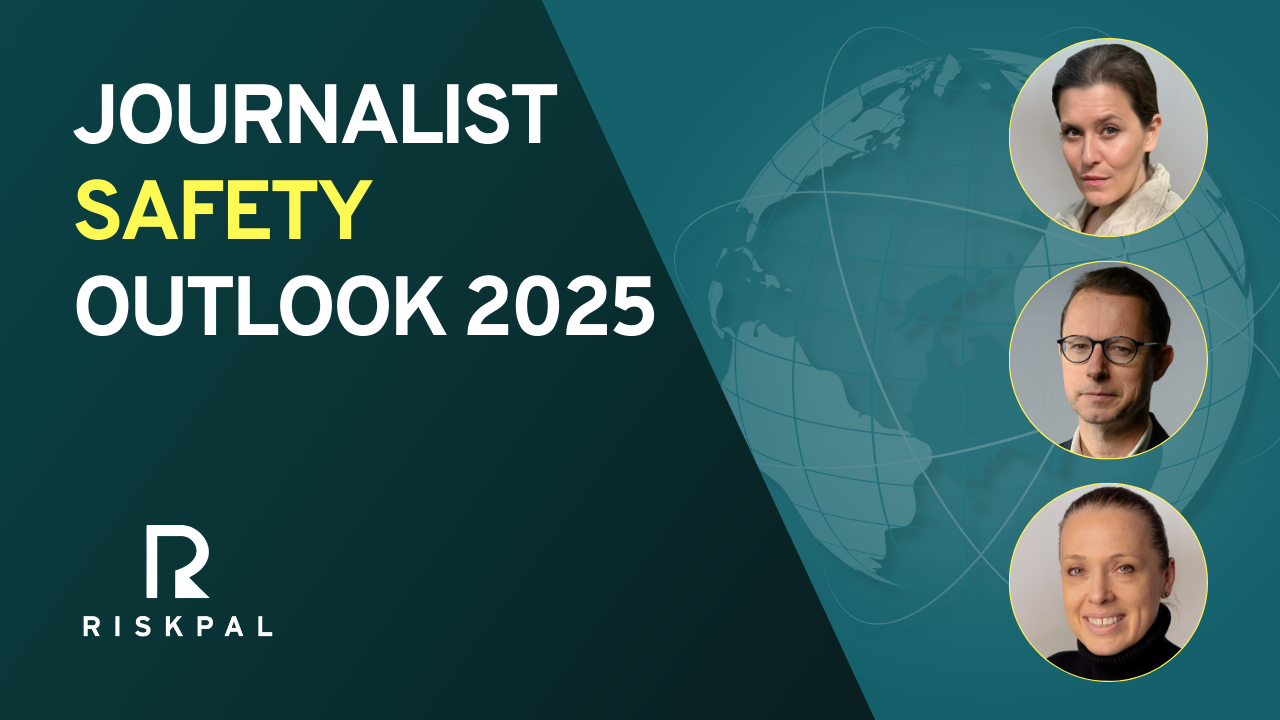A Guide on Risk Assessments and Security at Sporting Events
UEFA Euro 2024 is scheduled to take place between 14 June and 14 July this summer across Germany. Twelve days after the Euro Final, France will host the world’s biggest sporting event – the Summer Olympics, predominately in Paris. Broadcasters, journalists and content makers from all over the world will be flocking in droves to cover these sporting extravaganzas. Planning and preparations should be undertaken to ensure that security threats and disruptions have minimal impact.
Understanding the Security Threats
While it may be tempting to downplay security concerns for events in Europe, authorities hold a different perspective. Planned attendance numbers at the Paris Olympics opening ceremony are likely to be revised downwards for a second time due to ongoing security fears. Likewise, UEFA President, Aleksander Ceferin, has identified security as the “biggest concern.”
Potential for Protests and Disruptions
Both France and Germany have a history of social unrest.
In recent years, France experienced significant protests over issues such as retirement age and economic policies, including the disruptive "Yellow Vest" movement. Concerns also linger regarding labor strikes, as seen in 2019, impacting transportation and public movement. This year, farmers have taken to the street and ironically even the police have secured pay concessions from the government by threatening to strike during the Games.
Likewise, Germany has been hit by a series of strikes since the start of 2024 as unions press for higher wages and improved working conditions to make up for high inflation and staff shortages.
Innovative sabotage techniques are also planned by anti-establishment activists. Malicious disruptors are allegedly planning to pose as super-fans and sign-up to the Olympic volunteer programme, with the intention of being anything but helpful once the Games start.
At the same time, the French police are still dealing with a lack of trust caused by their actions during the 2022 Champions League final between Liverpool and Real Madrid in Paris which was marred by security failures. Thousands of Liverpool fans with valid tickets were denied entry to the Stade de France. In a chaotic scene, French police used tear gas and pepper spray to control frustrated crowds, causing panic and injuries. Poor crowd management led to bottlenecks and overcrowding, posing a risk of crushing for fans.
How Much Violence Does Football Hooliganism and the Far-Right Cause?
While football hooliganism has diminished, it remains a concern at football events in Europe. Past incidents like clashes between German and Polish fans during the Euro 2008 and between England and Germany fans at the 2006 World Cup in Germany, highlight the potential for violence.
In 2023, the UK police issued over 600 travel bans in a proactive attempt to prevent trouble at the tournament. German authorities are likely to implement increased security measures around stadiums and other key locations. This could include:
- Increased police presence for crowd control and rapid response.
- Alcohol restrictions in areas surrounding stadiums.
- Closer monitoring of known troublemakers and potential flashpoints.
So far there have not been any explicit pronouncements from established far-right groups in Germany directly calling for the disruption of the Euros. Yet, the potential for indirect threats and isolated incidents cannot be entirely ruled out.
In February, the German government announced a package of legal measures aimed at cutting far-right groups funding and removing their weapons following a series of anti-far-right protests. The German intelligence services report over 38,000 known right-wing extremists in the country, with approximately 14,000 considered potentially violent.
RiskPal’s Expert Advise: Risk Management Awareness Tips for Media
David Holley, Co-Founder of RiskPal, provided support to media teams during the 2006 World Cup amidst violent disturbances.

“Filming football fans at the 2006 World Cup had its challenges. The ‘lively’ atmosphere, fuelled by enormous amounts of German beer, was further intensified by the presence of hard-core ultras, who came out in force at certain fixtures like the Germany vs. Poland game.“ – David Holley
David Holley offers invaluable advice for media crews filming at the UEFA Euro 2024:
- Understand the dynamics of football hooliganism and how gangs operate in urban areas.
- Preempt potential "street battles" by scouting locations, such as balconies, shop windows, or flyovers, for elevated filming positions that offer safety.
- Conduct fan interviews away from crowds to avoid filming drunken brawls unless it aligns with your objectives.
- When police presence is high, position yourselves close to law enforcement to minimise the risk of being cut off by violent fans.
- Establish a strong working relationship with your safety advisor and determine clear limits and team protocols for operating in volatile crowd situations beforehand.
Mitigating Cybersecurity Risks at Major Sporting Events
In today's digital age, critical infrastructure like ticketing systems and event management platforms are vulnerable to cyberattacks. The 2020 Tokyo Olympics faced 450 million attempted cyber attacks which was 2.5 times more than the number seen at the 2012 London Olympics. Strengthening cyber defences to safeguard sensitive data will be crucial for everyone involved, including event operators and visitors.
Phishing attacks will be a concern and could target:
- Accommodation Bookings: Fake websites offering "discounted" accommodation could steal credit card details.
- Event Tickets: Phishing emails promising "free" or "discounted" tickets could lead to malware downloads or compromise financial information.
- Official Communication: Emails mimicking official Olympic and Euro 2024 communication could trick visitors into sharing personal data or clicking on infected links.
- Malicious Public Wi-Fi: Free Wi-Fi hotspots around sporting venues could be compromised, allowing attackers to intercept sensitive data like passwords and financial information.
- Malware: Downloading seemingly legitimate apps or clicking on suspicious links could infect devices with malware that steals data, corrupts files, or even takes control of the device.
- Social Engineering: Deception tactics used to manipulate individuals into revealing personal information or performing actions that benefit the attacker. This could involve impersonating officials, offering "help" with technical issues, or exploiting the excitement surrounding the event to pressure individuals into rash decisions.
Addressing the Terrorist Threat: Security Fears for the Olympics, the Euro and Future Sporting Events
Large gatherings, like the Olympics and Euros, present attractive targets for extremist groups. Both France and Germany have experienced recent Islamic terrorist attacks, though their frequency has decreased. However, ongoing events in the Middle East may serve as a rallying cry for Jihadi groups.
Recent attacks in Moscow and lone perpetrators events carried out in October in France and Belgium, show the disruptive capacity terrorism still poses. The attacks in Belgium resulted in two Swedish football fans being shot dead in an apparent retribution for Quran burnings in their home country and the postponement of an European qualifier match.
Safety plans should undoubtedly incorporate terrorist threats. However, concerns have been raised in France about the reliance on private security operators, with a shortage of up to 20,000 personnel feared. It should also be noted that the security industry in France is closely regulated and anyone engaging in security services must be registered with the National Council for Private Security Activities. Licenses must be specific to the service being provided – meaning a man guarding company cannot provide close protection and vice versa.
Safeguarding Staff: Risk Management Plans for Major Sporting Events
As organisations prepare to send staff to cover the UEFA Euro 2024 and the Summer Olympics in Germany and France, ensuring their safety should be paramount. Here are key safety measures to consider when sending personnel:
- Safety Briefing: Deliver a comprehensive safety briefing to all staff members traveling to the events, highlighting potential risks and emergency procedures.
- Risk Assessment: Conduct a robust risk assessment covering the risks outlined in this article, as well as any specific risks to your staff and the event venues. Communicate this assessment to all personnel.
- Communication Protocols: Establish clear communication protocols, including tracking processes, escalation procedures, and emergency contact information.
- Emergency Procedures: Develop emergency procedures based on realistic scenarios, outlining steps for evacuation, medical assistance, and support services.
- Medical and Support Protocols: Ensure that medical and support protocols are in place to address any health or safety concerns that may arise during the events.
- Specialist Equipment: Procure and issue any necessary specialist equipment, such as personal protective equipment (PPE), well in advance of the events.
- Security Providers: Vet security providers thoroughly and establish task allocation processes to ensure effective security measures are in place.
RiskPal advisors have extensive experience supporting news and media organisations during major sporting events. For more information on how we can assist your organisation in safeguarding staff at the UEFA Euro 2024 and the Summer Olympics, please contact us.



